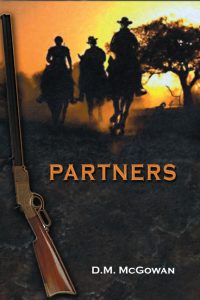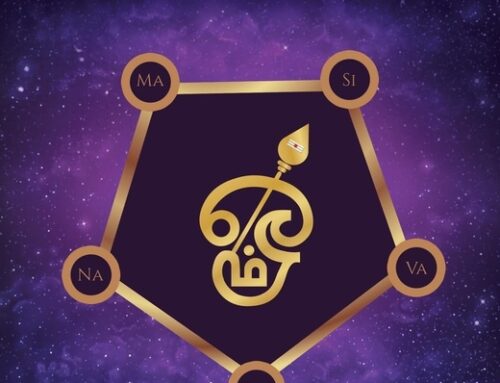 In 1866, Thomas Brash flees across Canada to escape the pain of losing his wife and children to cholera. Along the way he meets Frank Clement, a youth haunted by his own recent past. Tom is well educated, and Frank is ignorant of everything but survival in the wilderness of the Canadian Rockies. By the unique combination of their skills and qualities, they form a partnership to survive. Tom’s diplomatic approach wins friends among the Blackfeet, while Frank’s skill with a pistol deals effectively with enemies. As they journey through the wilderness, they meet up with two other men, and the four of them become partners in gold mining.
In 1866, Thomas Brash flees across Canada to escape the pain of losing his wife and children to cholera. Along the way he meets Frank Clement, a youth haunted by his own recent past. Tom is well educated, and Frank is ignorant of everything but survival in the wilderness of the Canadian Rockies. By the unique combination of their skills and qualities, they form a partnership to survive. Tom’s diplomatic approach wins friends among the Blackfeet, while Frank’s skill with a pistol deals effectively with enemies. As they journey through the wilderness, they meet up with two other men, and the four of them become partners in gold mining.
This is a story sure to interest people who like Western adventures with plenty of action. They’re the readers who disprove the notion that nobody reads Westerns any more. It’s not the typical Western, either, which one prominent Western author has defined as two men at war. This story has more than a hero going up against a bad guy and ending up with the hero killing the bad guy. It’s more a story of how people form alliances against common enemies. As such it’s timeless, because we humans will always need other people to help us get through life.
I especially appreciated McGowan’s portrayal of the Blackfeet as human beings within their own culture as Tom forges an alliance with Red Shirt that withstands even Tom’s killing of Lame Dog, one of Red Shirt’s warriors. McGowan uses Blackfeet culture to show Lame Dog’s poor character. When Lame Dog dies, Red Shirt has to hire people to sing his death chant because no one liked him enough to do it voluntarily. So it is that the culture reveals Lame Dog’s character as surely as his own actions do.
McGowan seems to know quite a bit about Blackfeet culture, which made one error a bit surprising. As a group or as individuals, these people are Blackfeet, members of the Blackfeet Nation. An individual is a Blackfeet, not a Blackfoot.
Casting Tom’s character as a teacher also enables the reader to learn from Tom’s lectures to young Frank, who isn’t as ignorant as Tom assumes from his illiterate speech. Their arguments deepen their characterizations.
But that very speech causes a problem in the writing that kept me stumbling as I read the book. Handling dialect is probably one of the more difficult tasks a writer has when trying to differentiate one character’s voice from another’s. Tom’s elevated vocabulary and formal sentence structure are suitable to that of an educated man of his era. Frank, who is an uneducated young boy, uses poor grammar and slurs his words. Here’s a sample. Frank begins this exchange.
“Don’t know’s I wanna hear all that stuff. ’Sides, I hadn’ planned on doin’ no more talkin’.”
“Well, that does not mean we should avoid conversation altogether,” Tom observed. “You have not been the greatest of companions this morning.”
Frank shrugged. “Used t’ bein’ alone,” he responded.
“During the past year, I, too, have learned to accept my own company, but that has not forced me to become surly and uncommunicative. “
“Don’t know as I can talk t’ yuh anyway,” Frank said. “Most o’ the time I got no idea what yer sayin’.”
The problem with writing dialect exactly as it might sound is that it forces the reader to slow the reading in order to sound his or her way through, or it makes the reader conscious of the odd words used to express the peculiarities of what the characters are saying. In either case, it pulls the reader out of the story, out of the “fictive dream,” the world of the story. And what happens then? The reader puts the book down and sometimes doesn’t pick it up again. We writers don’t want people putting our books down; we want them to say, “I stayed up until 2 a.m. reading. I didn’t get my house cleaned.”
Instead of dropping the final “g” on all Frank’s “ing” words (the present participles), an author might drop one here and there. I could have continued reading at speed comfortable for me, and after one or two, my inner ear would have heard Frank drop them even though they were printed on the page. Another problem in reproducing dialect arises from using misspellings such as “wanna” for “want to,” “yuh” for “you” and “yer” for “your.” These conscious misspellings also gave my reading a hitch in its get-along, and jerked me out of the story. Another contributor to the difficulty in reading the book was in this sentence: “’Sides, I hadn’ planned on doin’ no more talkin’.” Two of the words end in “n” because the character drops his “g’s”; the other – “hadn’” – comes from a dropped contraction: “hadn’t.” The eye stumbles because these three endings though the same in their dropped “g’s”, don’t arise from the same causes. By the time the brain reminds itself that the words are “hadn’t,” “going,” and “talking,” the eye has run along to the next group of words.
In the physiology of reading, we don’t read a word at a time, but in groups of words, rather like drinking in gulps like a dog does instead of sucking water steadily like a horse.
The essential difference between the two men’s ways of speaking isn’t their formal or informal manner of using words, or their grammatical or ungrammatical constructions, but Frank’s slurred, quick, economical speech patterns compared to Tom’s less rapid, more precise and wordy way of talking. The characterization would have been smoother if I hadn’t had to slow my reading because my eye stumbled over too many unfamiliar spellings. Ironically, I’d have experienced Frank’s lack of education just in the rhythm of his speech peppered with an occasional ungrammatical construction. For example, “Don’t know as I can talk t’ yuh anyway,” Frank said. “Most o’ the time I got no idea what yer sayin’” might have been rendered this way: “Don’t know as I can talk to you anyway,” Frank said. “Most of the time I got no idea what you’re saying.” Leaving off the subject of both sentences, “I”, would alone have done the job.
All in all, though, I’m keeping Partners on my bookshelf, and I’ll look forward to the next book by D. M. McGowan.
Get an Editorial Review | Get Amazon Sales & Reviews | Get Edited | Publish Your Book | Enter the SPR Book Awards | Other Marketing Services






















G’day Carol;
Thanks for the review. I very much appreciate it.
Excellent arguments concerning the presentation of speaking styles although I believe my counter arguments outweigh them … and that’s why I wrote it the way I did.
The ‘Blackfoot’ – ‘Blackfeet’ thing brought me to a writing pause for about a day while I considered it. “Will writing it as Blackfeet in this particular context cause the reader difficulty?” I eventually settled for doing it ‘wrong’ since it wasn’t realy a name invented by the people who wear it but by the Lakota and then badly anglesized by whites. True, they wear it proudly today, but there was a time…
Dave
Dave,
Wishing you all the best with your next book. Hope it’s a best seller!
Carol
Partner’s is one of the greatest book’s that I have read. Igt makes you feel like you are right there with Tom and Frank. Keep up the great writing Partner.